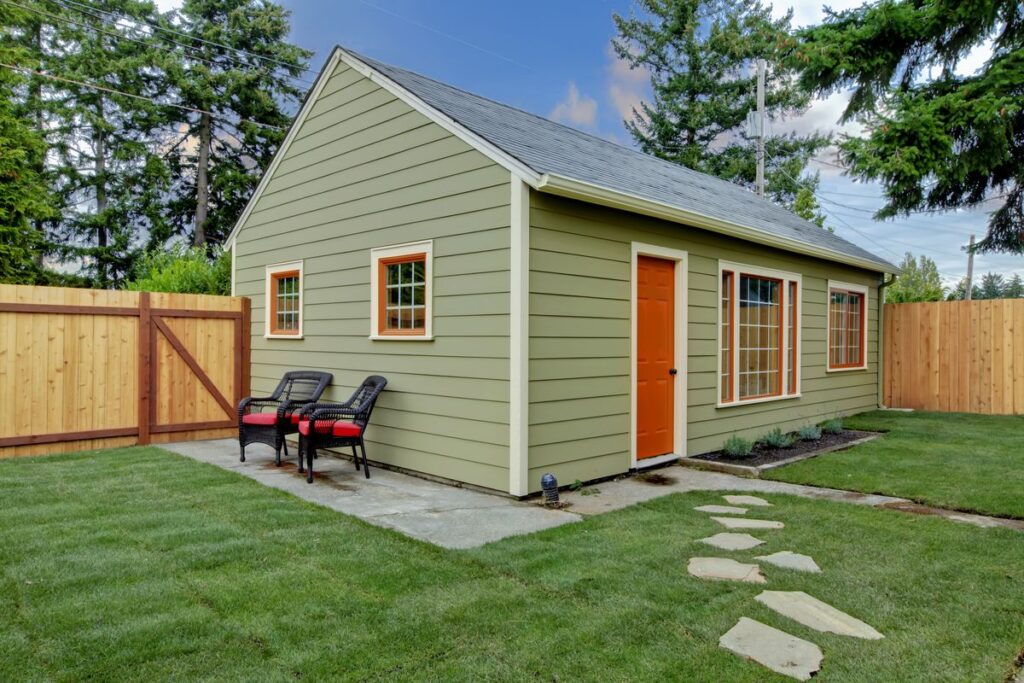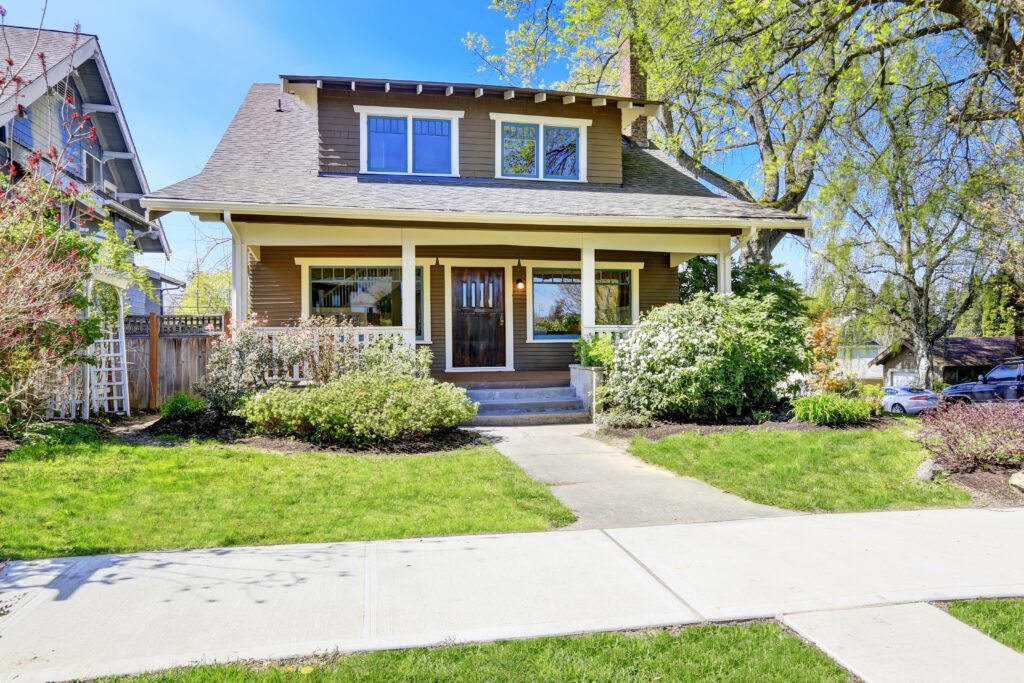Finding the right contractor can make all the difference. But with so many options out there, how do you know which one is the best fit? Don’t worry – we’ve got you covered! From checking credentials and experience to getting multiple quotes and asking for references, we’ll guide you through the process step by step. So, get ready to embark on your ADU journey with confidence and ensure a successful outcome.
Tip 1: Define Your Project Scope and Goals:
Determine the size and purpose of your accessory dwelling unit (ADU)
Before choosing a contractor for your ADU project, it’s important to define the scope and goals of your project. Start by determining the size and purpose of your ADU. Are you planning to build a small studio apartment or a larger living space? Will it be used as a rental property or for personal use? Understanding these factors will help you communicate your needs effectively to potential contractors.
Set a realistic budget
Next, establish a realistic budget for your ADU project. Consider factors such as construction costs, permits, materials, and labor. Having a clear understanding of how much you are willing to spend will help narrow down your options when selecting a contractor.
Identify any specific requirements or preferences
Do you have any specific requirements or preferences for your ADU project? For example, do you want energy-efficient features, specific architectural styles, or certain amenities? Identifying these details beforehand will allow you to find a contractor who specializes in meeting those requirements.
Research local building codes and regulations
Every city has its own set of building codes and regulations that must be followed when constructing an ADU. It’s essential to research these requirements before starting your project. Look for contractors who have experience working within these guidelines to ensure compliance with local laws.
Tip 2: Seek Recommendations and Check References:
Ask for Recommendations:
When choosing a contractor for your accessory dwelling unit project, it’s important to seek recommendations from trusted sources. Talk to friends, family members, or neighbors who have recently completed similar projects. They can provide valuable insights into their experiences with different contractors and help you narrow down your options.
Research Online Reviews:
In addition to personal recommendations, take the time to research online reviews of contractors in your area. Websites like Yelp, Google Reviews, and Angie’s List can provide helpful feedback from previous clients. Look for contractors with consistently positive reviews and high ratings.
Check References:
Before making a final decision, it’s crucial to check references provided by the contractor. Reach out to past clients and ask about their overall satisfaction with the contractor’s work. Inquire about the quality of craftsmanship, adherence to timelines, communication skills, and any issues they encountered during the project. This will give you a better understanding of what to expect if you decide to hire that particular contractor.
Visit Completed Projects:
If possible, visit some of the contractor’s completed projects in person. This will give you a chance to see the quality of their work firsthand and assess whether it aligns with your expectations. Pay attention to details such as finishes, materials used, and overall aesthetics.
Verify Licenses and Insurance:
Always verify that the contractor holds all necessary licenses and insurance required by your state or local jurisdiction. This ensures that they are qualified to perform the work legally and protects you from liability in case of accidents or damages on-site.
Tip 3: Verify Licensing and Insurance:
Licensing:
It’s crucial to verify their licensing. A licensed contractor has met the necessary requirements and regulations set by the state or local authorities. This ensures that they have the knowledge and expertise needed to complete your project successfully.
To verify a contractor’s license, you can check with your state’s licensing board or department of consumer affairs. They will be able to provide you with information on whether the contractor is properly licensed and if there have been any complaints filed against them.
Insurance:
In addition to licensing, it’s important to ensure that the contractor you choose has adequate insurance coverage. Construction projects can be risky, and accidents or damages may occur during the process. By hiring a contractor with insurance, you protect yourself from liability in case of any unforeseen incidents.
Ask potential contractors for proof of insurance and make sure it includes both general liability insurance and workers’ compensation coverage. General liability insurance protects against property damage or injuries caused by the contractor or their employees, while workers’ compensation covers any injuries sustained by workers on your property.
Tip 4: Assess Experience and Expertise:
Years of Experience Matter
When choosing a contractor for your accessory dwelling unit (ADU) project, it’s important to assess their experience and expertise. Look for contractors who have been in the industry for several years. The more experience they have, the more likely they are to have encountered a variety of situations and challenges, which can be beneficial.
Specialization in ADU Construction
Not all contractors specialize in building ADUs. It’s essential to find a contractor who has experience specifically with ADU construction. They should be familiar with the unique requirements and regulations associated with building an accessory dwelling unit. By hiring a specialized contractor, you can ensure that they understand the intricacies of ADU projects and can provide you with expert guidance throughout the process.
Check their Portfolio
Take the time to review the contractor’s portfolio or gallery of past projects. This will give you an idea of their style, craftsmanship, and attention to detail. Look for examples of completed ADUs that are similar in size or design to what you envision for your own project. If possible, visit some of their previous work sites in person to see the quality of their construction firsthand.
Professional Certifications and Memberships
Consider whether the contractor holds any professional certifications or memberships in relevant trade associations or organizations. These credentials can indicate a commitment to ongoing education, best practices, and industry standards.
Tip 5: Conduct Interviews and Ask Questions:
Prepare a list of questions
Before conducting interviews with potential contractors for your accessory dwelling unit (ADU) project, it’s essential to prepare a list of questions. These questions will help you gather important information about their experience, qualifications, and approach to the project. Consider asking about their previous ADU projects, how they handle unexpected challenges, and what permits or licenses they possess.
Schedule interviews
Once you have your list of questions ready, schedule interviews with the contractors you are considering. During these interviews, you’ll have the opportunity to assess their communication skills, professionalism, and overall compatibility with your project goals. It’s crucial to meet them in person or through video calls as this allows you to gauge their demeanor and get a better sense of whether they are the right fit for your needs.
Evaluate their responses
During the interviews, pay close attention to how well the contractors respond to your questions. Are they knowledgeable and confident? Do they address any concerns or uncertainties you may have? Evaluating their responses will help you determine if they have a solid understanding of ADU construction and if they align with your vision for the project.
Tip 6: Obtain Detailed Written Estimates:
Obtaining detailed written estimates is an essential step. This will help you compare costs and make an informed decision based on your budget and requirements.
Importance of Detailed Estimates
Obtaining detailed written estimates from different contractors allows you to understand the breakdown of costs involved in your ADU project. It helps you identify any hidden fees or additional expenses that may arise during construction. By having these estimates in writing, you can hold the contractor accountable for delivering the project within the agreed-upon budget.
What to Look for in an Estimate
A comprehensive estimate should include a detailed description of the work to be done, materials to be used, labor costs, and any permits or licenses required. It should also outline a timeline for completion and specify payment terms. Make sure to review each estimate carefully and ask questions if anything is unclear.
Comparing Estimates
When comparing estimates, it’s important not only to consider the total cost but also the quality of materials and workmanship offered by each contractor. Don’t automatically choose the lowest bid without considering other factors such as reputation, experience, and customer reviews. Remember that paying a little extra for a reputable contractor can save you money in the long run by avoiding costly mistakes or delays.
Negotiating with Contractors
If you receive multiple estimates that are higher than your budget allows, don’t hesitate to negotiate with contractors. They may be willing to adjust their pricing or suggest alternative options that can bring down costs without compromising on quality. Open communication is key during this process.
Tip 7: Review Contract Terms and Conditions:
Understand the contract terms:
Before finalizing your decision, take the time to carefully review the contract terms and conditions provided by the contractor. Make sure you understand all the details outlined in the contract, including the scope of work, payment schedule, timeline, and any warranties or guarantees offered.
Pay attention to payment terms:
Examine the payment terms specified in the contract. Ensure that they are fair and reasonable. Look for provisions regarding down payments, progress payments, and final payment. It is important to have a clear understanding of when and how much you will be required to pay throughout the project.
Clarify change order procedures:
Find out what procedures are in place for making changes to the project once it has started. Ask about any potential additional costs associated with change orders and how they will be handled. It’s crucial to have a clear understanding of these procedures upfront to avoid misunderstandings or unexpected expenses later on.
Check for termination clauses:
Review any termination clauses included in the contract. These clauses outline circumstances under which either party may terminate the agreement. Pay attention to any penalties or fees that may apply if you need to terminate the contract before completion.
Tip 8: Check for Red Flags:
Unprofessional Communication:
Pay attention to how the contractor communicates with you. If they are unresponsive, fail to return calls or emails promptly, or seem disorganized in their communication, it could be a red flag. Clear and timely communication is essential for a successful project.
Lack of References or Portfolio:
A reputable contractor should be able to provide references from previous clients and showcase their portfolio of completed projects. If they are unable or unwilling to provide this information, it may indicate a lack of experience or poor quality work.
No Proper Licensing and Insurance:
Always verify that the contractor has the necessary licenses and insurance coverage. This ensures that they meet the legal requirements for operating as a contractor and protects you from any liability in case of accidents or property damage during the project.
Poor Reviews or Complaints:
Do some research online to check for reviews and ratings of the contractor. Look out for consistent negative feedback or unresolved complaints. While one or two negative reviews may not be cause for concern, multiple complaints should raise red flags.
Lack of Written Contract:
Never work with a contractor who refuses to provide a written contract detailing all aspects of the project, including timelines, costs, materials used, and payment terms. A written contract protects both parties involved and ensures clarity throughout the project.
Tip 9: Visit Completed Projects and Sites:
Look for Inspiration and Quality Workmanship
One of the best ways to assess the capabilities and quality of a contractor is by visiting their completed projects and sites. By seeing their work firsthand, you can gain valuable insights into their craftsmanship, attention to detail, and overall design aesthetic.
Evaluate the Durability and Longevity of Their Work
When visiting completed projects, pay close attention to the durability and longevity of the structures. Look for signs of wear and tear or any issues that may have arisen over time. This will give you an indication of how well-built their projects are and whether they stand the test of time.
Assess the Functionality and Practicality
While aesthetics are important, it’s equally crucial to assess the functionality and practicality of a contractor’s work. Take note of how well-designed each space is, whether it meets its intended purpose, and if it enhances the overall livability of the property. This will help you determine if they have a keen eye for both form and function.
Seek Feedback from Previous Clients
During your visit to completed projects, try to speak with previous clients who have worked with the contractor. Ask them about their experience working with them, whether they were satisfied with the results, and if there were any challenges along the way. Hearing directly from past clients can provide valuable insights into a contractor’s professionalism, communication skills, and ability to meet deadlines.
Consider Compatibility with Your Project Vision
Lastly, when visiting completed projects, evaluate how well they align with your own vision for your accessory dwelling unit project. Look for similarities in style, design elements, or features that resonate with what you have in mind. This will give you an idea of whether or not the contractor can bring your vision to life.
Tip 10: Trust Your Instincts and Establish Open Communication:
Trust your instincts:
It’s important to trust your instincts. Pay attention to how you feel when interacting with potential contractors. If something doesn’t feel right or if you have any doubts, it may be a sign that they are not the right fit for your project. Trusting your instincts can help ensure that you choose a contractor who understands your vision and will work well with you.
Establish open communication:
Open communication is key when working with a contractor for an accessory dwelling unit project. You want to choose someone who is responsive and easy to communicate with. Look for a contractor who listens attentively to your ideas, answers your questions promptly, and keeps you updated throughout the project. Good communication ensures that everyone is on the same page and helps avoid misunderstandings or delays.
Regular check-ins:
Regular check-ins are essential during the construction process. Schedule regular meetings with your contractor to discuss progress, address any concerns, and make necessary adjustments. These check-ins allow you to stay informed about the status of your project and provide an opportunity for open dialogue between you and the contractor.
Building a strong relationship:
Building a strong relationship with your chosen contractor is vital for a successful accessory dwelling unit project. By trusting your instincts, establishing open communication, having regular check-ins, and embracing flexibility, you can foster a positive working relationship from start to finish.
Conclusion
And there you have it, the ten essential tips for choosing the right contractor for your accessory dwelling unit (ADU) project. By following these guidelines, you can navigate the selection process with confidence and ensure a successful outcome for your project. Remember to define your project scope and goals, seek recommendations and check references, verify licensing and insurance, assess experience and expertise, conduct interviews and ask questions, obtain detailed written estimates, review contract terms and conditions, check for red flags, visit completed projects and sites, and trust your instincts while establishing open communication.
Now that you have armed yourself with these valuable insights, it’s time to put them into action. Start by evaluating potential contractors using the tips provided. Don’t rush the decision-making process; take your time to find the right fit for your ADU project. Remember, choosing the right contractor is crucial for a smooth construction process and a successful end result. Good luck!
Maximize Your Property with Accessory Dwelling Units by Red White & Blue Construction!
Are you considering an accessory dwelling unit (ADU) in Lafayette, CA? Look no further than Red White & Blue Construction, your trusted ADU specialists! Transform your property with a custom ADU that caters to your changing lifestyle needs. Renowned for our expertise in ADU projects, we’re here to turn your ideas into reality, be it a cozy backyard cottage, a stylish in-law suite, or a functional home office. Our proven track record in the Bay Area stands as a testament to our commitment, craftsmanship, and the exceptional standards we uphold in every undertaking.
At Red White & Blue Construction, we’re more than just builders; we’re architects of your ideal living solution. With our transparent pricing and exceptional client service, you’re not just adding an ADU; you’re investing in a versatile, value-adding extension of your home. Choose Red White & Blue Construction for your ADU project. Embark on a journey of Property Enhancement Excellence and contact us today!
Disclaimer
The materials available on this website are for informational and entertainment purposes only and not to provide advice. You should obtain advice concerning any particular issue or problem from a professional. You should not act or refrain from acting based on any content included in this site without seeking legal or other professional advice. The information presented on this website may not reflect the most current building developments. No action should be taken in reliance on the information on this website. We disclaim all liability concerning actions taken or not taken based on any or all of the contents of this site to the fullest extent permitted by law.




